Charging Station
Charging of electric cars can be done at various charging stations which can be set up at home, office, malls, restaurants, highways, interior roads known as public charging station. The time taken to charge the vehicle fully depends upon the type of charging station and battery capacity.
Bharat EV specification recommends IEC 60309 industrial connectors for all chargers.
There are two types of charger available in the market.
- AC Charger (Slow charger)
- DC Charger (Fast charger)
AC Charger
Normal AC Charger
AC charger supplies AC current to onboard charger. AC current is converted into DC current by onboard charger. The charger capacity is 2.5kw to 3kw power. AC charger requires normal household single phase voltage (120V or 230V). Time taken by AC charger is almost 8-12 hrs to charge the battery to its full capacity. This is cheaper and normally provided along with electric vehicle as an accessory. EV can be charged at any location, be at home or your office or any other location where normal single-phase power is available.
Fast AC Charger
Major brand cars are now coming with this type of charger setup. The power rating of these chargers ranges from 7.7KW to 22KW. This enables charging at faster rate.
DC Charger
DC charger supplies DC current which is directly supplied to battery. Hence, charging rate is faster than AC charger. The power rating of DC charger ranges from 10KW to 150KW. Time taken to charge the vehicle ranges from 2 hrs to 30 minutes. These chargers are suitable for cab operators, corporates, and public charging stations.
DC chargers are of two types
Level 1 charger
The power output of these charger is 10KW to 30KW with voltage of 440V. Maximum current capacity of these chargers are 200A.
Level 2 charger
The voltage level is up to 1000V and power rating is upto 150KW. These chargers are the fastest charger available in the market. Suitable for heavy duty truck and bus charging.
Plug Connectors
Plug connectors are the charging cable end points which connects the power source and onboard charger of EV. Different countries have devised their own specifications based on their standards.
- CHAdeMO by Japan
- CCS / COMBO By Europe
- GB/T by China
- Supercharger by Tesla
The first electric car was produced in 1880s. The production of electric car got momentum in 2008 due to advances in battery capacity and desire to reduce the greenhouse gases emission. Almost all major automobile companies are launching electric cars. Tesla is the pioneer in this segment with high capacity battery which can run almost 600KM in single charge.
Almost all governments across the globe has started giving incentives to promote production and uses of electric cars.
Indian government has launched Faster Adoption and Manufacturing of Electric Vehicle (FAME) I between 2015 to 2019 to promote production and utilization of electric vehicle in India. Indian Government has an ambitious target of converting all vehicles into electric vehicles by 2030.
Electric vehicle is the future. Future mobility is electric vehicles.





